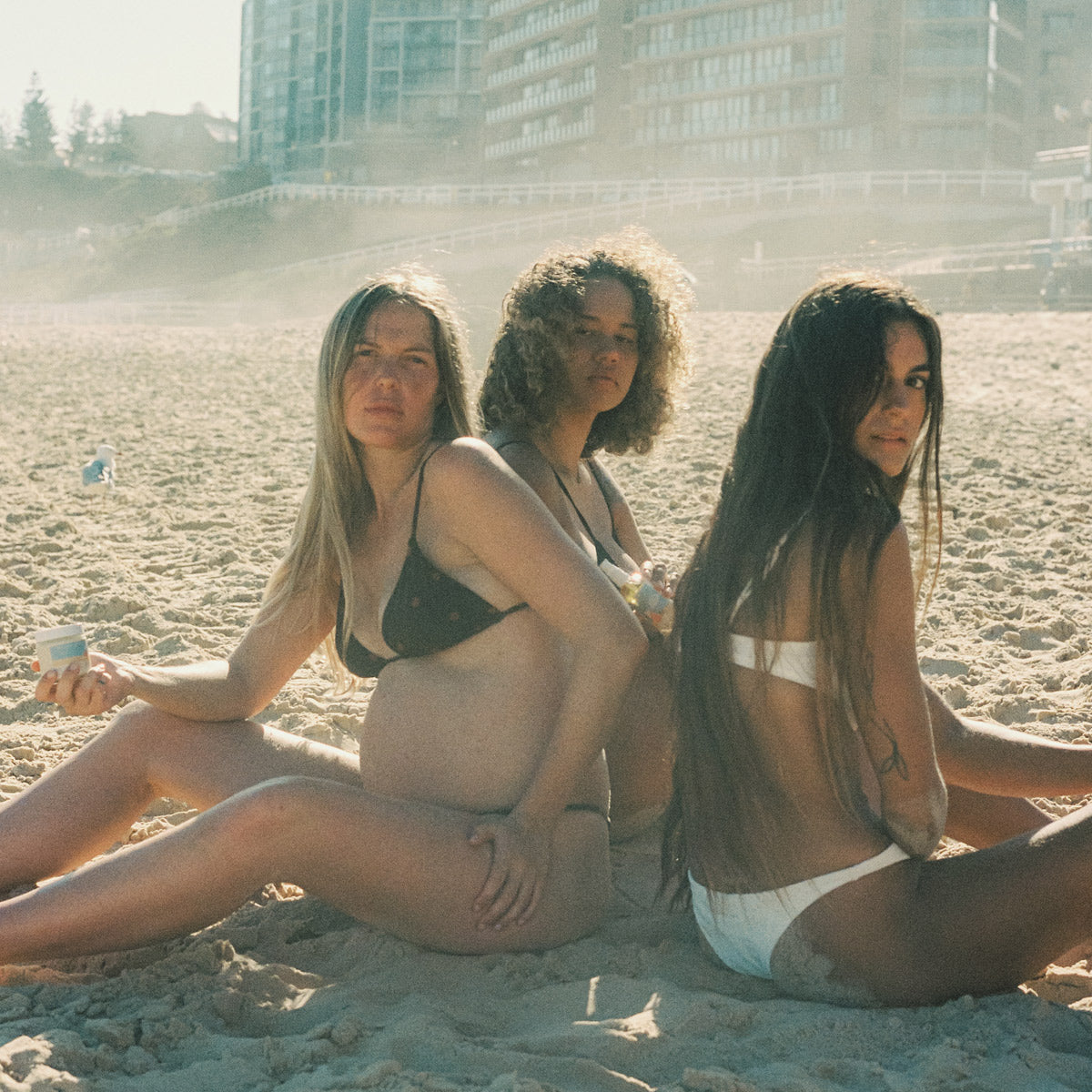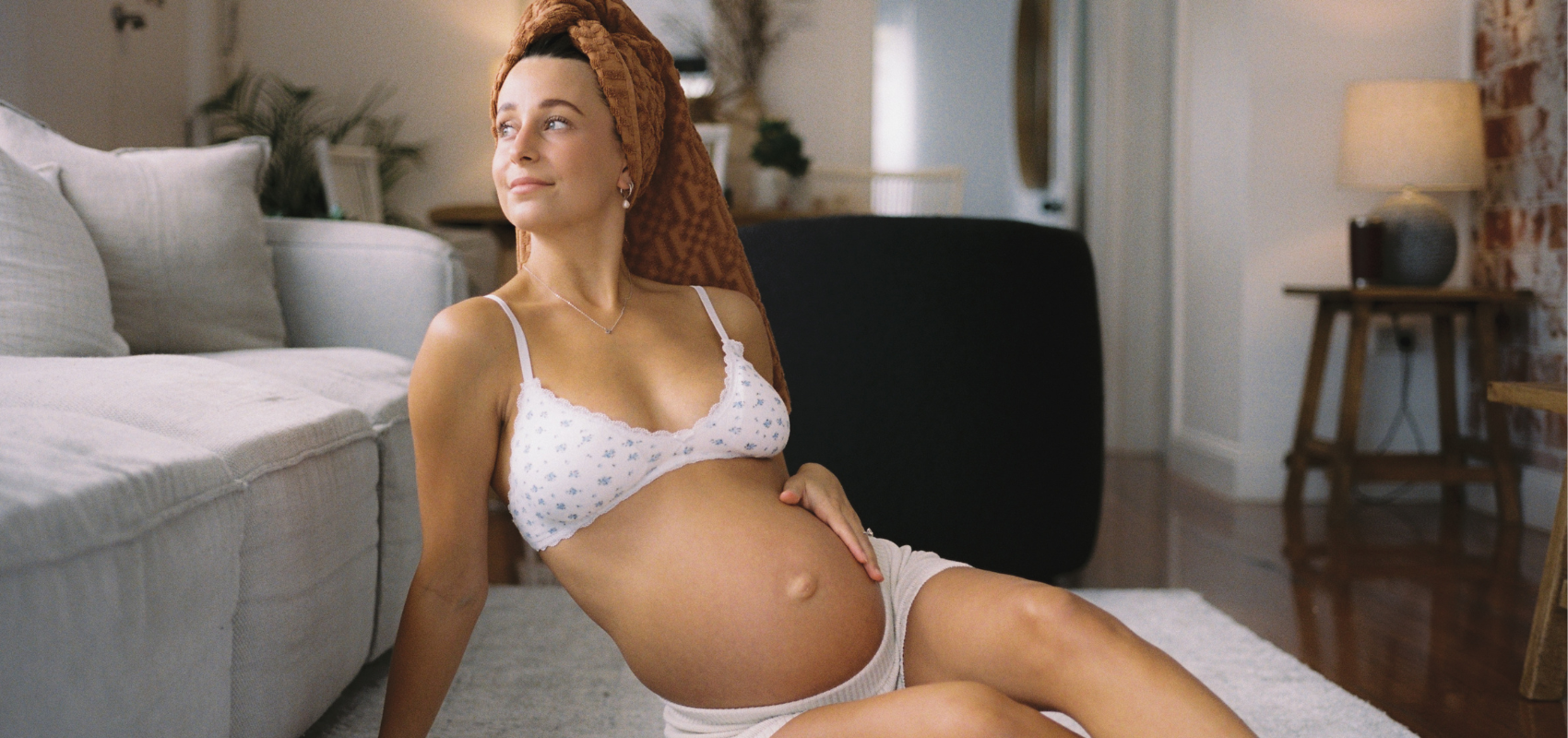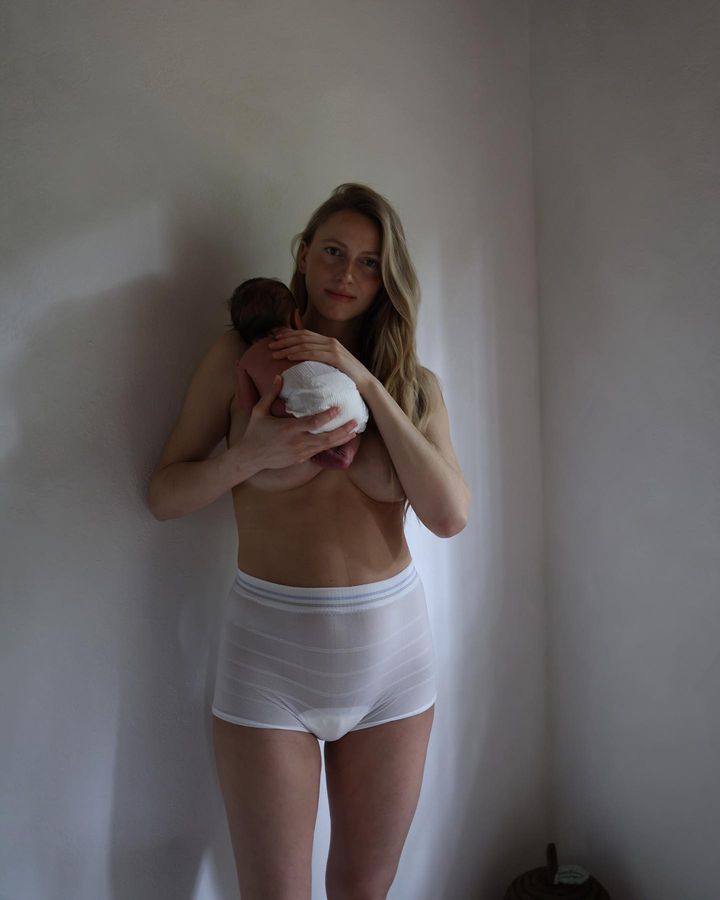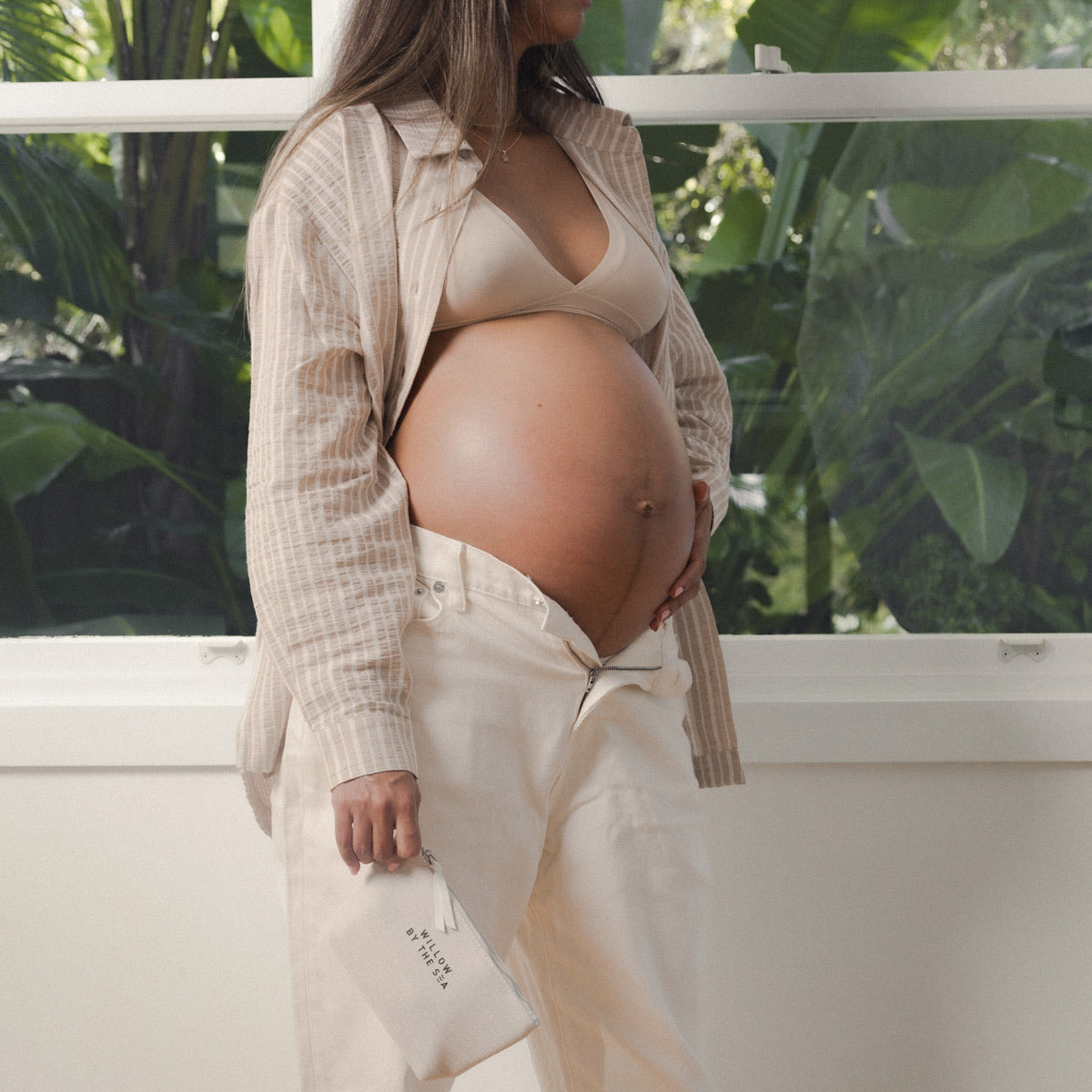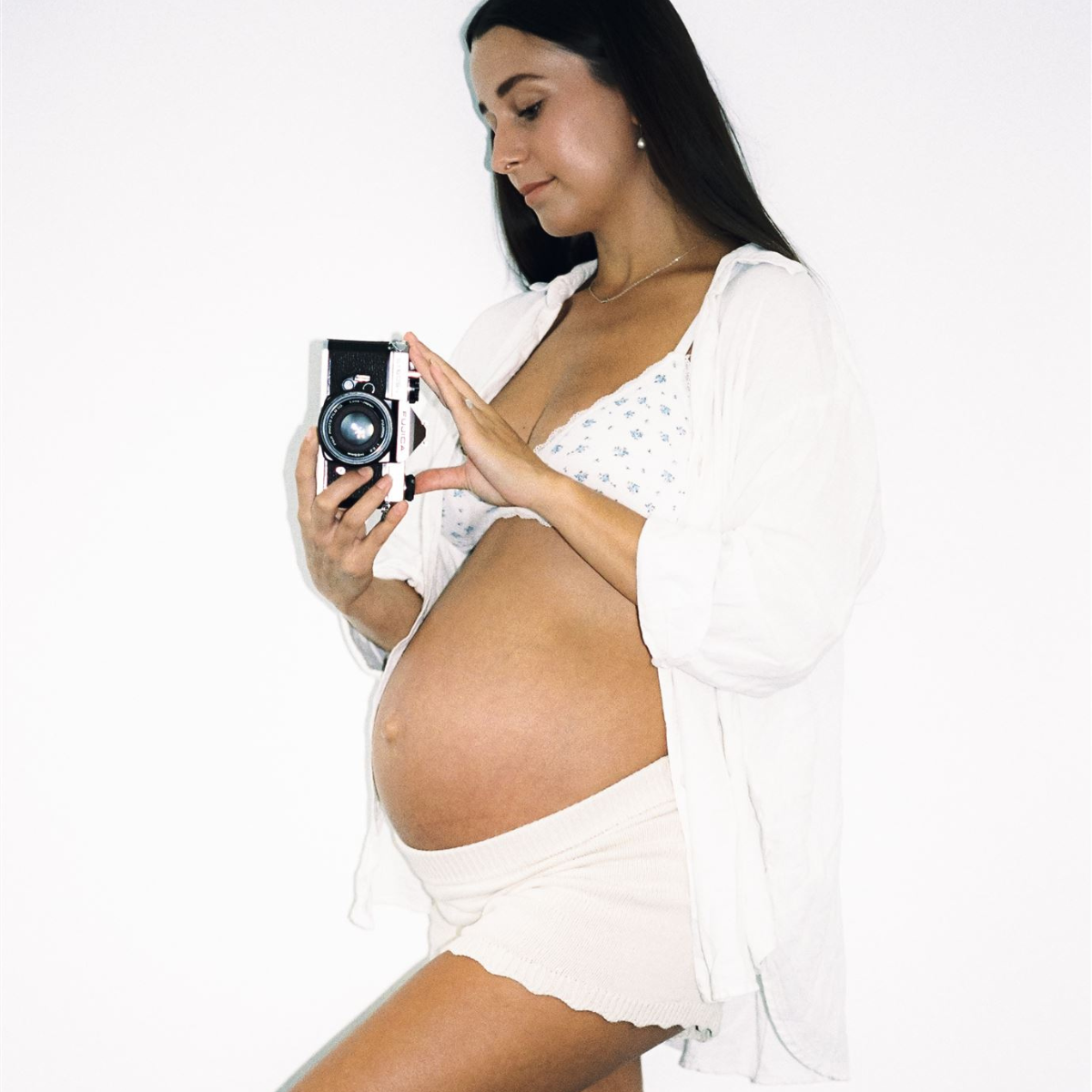We gained freedom and choices but systems didn’t evolve to support it.
I thought I would dread going back to work after having another baby. I look at Mum’s returning to work after maternity leave and feel a twinge of sadness for them. Grief that the first months/year of their baby's life is over, but there’s something so sad to me about the term maternity leave. Why do we have to take "leave" to care for our own babies, as if it's a break from something more important?
And then we’re expected to return to work, while still carrying the full weight of parenting. Same performance and output as before. And that’s fair enough, you also don’t want to be the dead weight negatively impacting your colleagues or team’s performance (just another layer of guilt).
Then I remembered, I actually really enjoy work. There is a reason why women fought to go back to work, it’s a privilege, liberating, and important for society to have women in certain roles. So then followed the realisation. In my case, it’s not about dreading work itself, it’s about the weight of doing work on top of everything else. The endless juggle. The invisible load. Feeling like a ball is always being dropped somewhere.

And yes, woe is me, I’m not the first and won’t be the last Mum to work but you've likely seen it in your own feed “Where is the village? We’re not meant to do this alone.” I’m sure you’ve viscerally felt it too.
We all refer to this village. But lately I have been thinking, When? What village? Where did it go? Most of us haven’t lived in tribal or community-based societies for hundreds, even thousands of years. Did the generations before us just grit their teeth and bear it?
And what about the 1950’s housewives who are renowned for popping amphetamines, barbiturates and as the Rolling stones coined it “Mother’s little helpers”, they don’t sound like they were having the best time. What about Baby Boomers and Gen X? Speaking from my personal experience, I have always been surrounded by predominantly working mothers but I have never really heard them complain about how hard it was. Maybe they’ve forgotten, maybe they built them tougher back then, or maybe they had more support than us.

So, I did a deep dive:
What Happened To The Village?
Let’s zoom in on the last century:
-
Post-WWII: Families became more nuclear. Suburban living rose. People moved away from extended family for jobs. Gender roles hardened: breadwinner dads working long hours, housewives managing the rest.. alone.
-
1950s: Cue the rise of “Mother’s Little Helpers” prescribed to housewives to keep them going. It was the birth of the modern ‘supermum’ pressure.
-
The Fightback: Bored, powerless, and angry, women began pushing back. The second wave feminist movement fought for equal rights, access to contraception, control over their own money (yes, in Australia, women couldn’t open a bank account without a male co-signer until the 1970s!), and re-entry into the workforce, not just for financial survival, but for identity and autonomy.
-
Boomers and Gen X: Many mothers still worked, but often had suburban-style villages: close-knit neighbours who became family. Kids played on the street. With no social media, connection happened face-to-face. Support was created by necessity.
There was a sense that the streets were safe. There was a kind of communal trust, a shared responsibility. Whether the world was actually safer, or we just felt safer, is up for debate, but either way, it shaped how freely kids were raised.
Today, that same freedom feels rare.
Where We Are Now
Here’s what I believe are the top contributors to why we feel so isolated and burnt out, and why postpartum depression and anxiety is at an all-time high:
1. Economic Shifts
Dual-income households are now the default, not the exception. But caregiving systems haven’t evolved to support this. We can barely afford to live on one income, even if we want to. We’ve all seen the memes:
“Mums are expected to work like they don’t have kids, and parent like they don’t work.”
But this is what we wanted right? Sure, women wanted the choice to work and many of us love our jobs. But now we’re doing both - paid work and unpaid domestic labour.
If we had to outsource what we do, childcare, cleaning, meal prep, scheduling, emotional load, we’d be paying thousands per month.
It’s also worth mentioning the Two-Income Trap which is a term popularised by Elizabeth Warren which argues that when women entered the workforce in large numbers, banks and governments benefited. Families could borrow more, which inflated housing prices, and the cost of living rose to meet this new norm. In short: the system shifted to expect two incomes. Feminism gave us choice. But economic systems gave us no real alternative, and didn't return the support.
2. Physical Separation
We’ve moved away from our hometowns, our families, and our long-term communities and more than ever. Interstate or overseas living is now common. And when we’re disconnected from our support networks, we’re also disconnected from everyday exposure to babies and parenting.
So for many of us, having our own baby is the first time we’ve ever held one. This can lead to a lack of confidence and it sends us into those 3am Google spirals. Which is the last thing our vulnerable, hormonal, overstimulated, tired selves need.
3. Technology + Information Overload
We are constantly connected and yet feel more alone than ever.
Social media has become our default form of connection and information. And yes, there are beautiful, helpful resources out there. But the flood of opinions, advice, and curated perfection is too much. Our brains are not wired for this much information intake.
It overstimulates us. It distracts us, breeds comparison and it can undermine our instincts, telling us to go against our gut at a time when we most need to listen to it.
4. The Millennial sandwich generation.
Millennials are the current parenting sandwich generation. We’re parenting our children, sometimes caring for aging parents, but this time around, we’re also reparenting ourselves.
We’re the generation of awareness, of cycle-breakers. And it’s beautiful… but exhausting.You may have also seen (and felt) in your feed:
“Being a millennial parent is great, because we’re regulating our children, ourselves, and our parents.”
We care A LOT. But has any generation ever been harder on themselves in the process?
I really think this all bleeds into mum guilt, just to apply the pressure cherry on top.

According to science writer Elena Bridgers, hunter-gatherer societies were remarkably egalitarian. Yes, everyone worked, but childcare and domestic duties were considered part of that work. Everyone, regardless of gender or parental status, contributed roughly the same number of hours, which meant they also had equal access to leisure. Nearly half the day was spent resting, socialising, or playing. When a woman had a baby, the rest of the community naturally reshuffled to support her. It was a shared load, built into the rhythm of life.
In an ideal modern world, this would look like being able to survive off one income, or two part-time incomes if we chose to, so that paid work, parenting, and domestic life could be shared meaningfully between both parents.
As for more modern times, I myself grew up with a single mum of three working full time, we used to have our aunty that lived around the corner, and another 5 neighbours in our cul-de-sac who we also called aunty that weren't actually related and together with their kids they filled our family photo albums. They were our family. Who we spent the street Christmas parties with. We would walk to each other’s houses, hang out in each other’s rooms, skip on the street, go bush walking. Our parents just always a rough idea where we were and even though Mum was working long hours, we were never without a village.

But this is absolutely still more of an issue in the West. When I went to Cambodia in 2024, the accommodation I was staying at was a cluster of huts on a beach. They had more than enough staff working at all times. There was a toddler there, doted on by everyone. The women would hang out in the kitchen and common area while the little one toddled between them. The men would come in from manual labour or fishing and come and give her lunch or scoop her up for a cuddle. It was never solely on the mother to care for her alone. There was also a pregnant worker, who was clearly on lighter duties and you would only see her a couple hours a day. Everyone just… shared the load.
And sure, this is a unique situation because of their living and work arrangements but there is still a great sense of community in many Asian cultures.
I’ve also seen this in Japan where there’s a cultural sense of shared responsibility. Children as young as six commute on the subway alone, and older generations instinctively keep an eye out. Of course, it’s not perfect, but the public feels safer, more trusting.
And this is of course all very nuanced, but I guess this is what everyone is talking about when they say we’ve lost the village.

Anyway, the point of this blog isn’t to complain. Obviously It’s important to be grateful for the beautiful blessing of motherhood and every day life is. and it truly is.
The point is to make you feel seen. You’re not broken, the systems are.
Something we all need to be reminded of most days. If you’re struggling to do it all, is that parenting is actually a full-time job in itself and that should be enough.
It’s not about going back in time. Most of us don’t want that. We have incredible privileges that we shan't take for granted. It's about rebuilding something that works for today. Micro-villages. Shared loads. Honest conversations. Tandem parenting with friends.
It’s also worth remembering that it’s probably never been perfect. The generations before us didn’t have it all figured out either but the difference now, to me, seems to be that Gen Z and Millennials care so much. We’re trying harder than ever to get it exactly right… and it’s burning us out.
But they say the pendulum has to swing all the way to one side before it finds balance. And maybe that’s what this is. Maybe we’re swinging, recalibrating, figuring out how to build something gentler. Not a return to the old village, but a version that works for us today.


